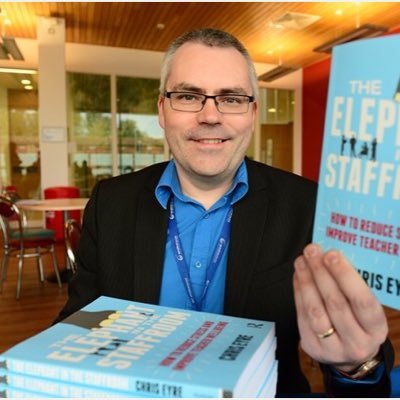The Strange Case of the Experience Machine and the Covid cohort
- Chris Eyre

- Feb 26, 2023
- 5 min read
The philosopher Robert Nozick has a famous thought experiment involving an experience machine or pleasure machine. He asks us to imagine that we could step into a machine where we would experience endless pleasure. If we wanted to be a famous celebrity we would be, if we wanted to be good at football we would be, a perfect marriage, a singing voice that filled stadiums and not the slightest moment of pain. Yet our current life would be wiped away; this would be a virtual reality where we would have constant, albeit unreal, pleasure. The life you gain would not be real. Your virtual wife wouldn't really love you and you didn't score a real goal in the world cup final. Would you step into the machine? You have a paragraph or two to ponder your answer
The Covid Cohort
We are blessed or cursed to live in interesting times in education. On one level everything is back to normal and yet on another, much has changed.
We know that attendance is lower by a couple of percent than pre-pandemic in most schools and colleges - we did spend two years telling people to stay at home I guess.
We have strong anecdotal evidence that behaviour and concentration is not what it was for many students. Even my very well behaved sixth formers are having to be told to put phones away a little more than usual - perhaps spending year 9 and 10 with Microsoft teams on one screen and fingers scrolling through YouTube or Instagram with the other hand was not time well spent after all. Mental health struggles are more prevalent. Is this the normal consequence of coming through the trauma of Covid or something else? Either way, it's schools and colleges picking up the pieces as other services are stretched or cut.
At a college level we seem to be seeing more students dropping out or switching subjects after a few weeks; there seems to be less resilience at times, less commitment. Don't get me wrong; my students are great and teaching them is a privilege but it doesn't take much to blow some of them off course.
If we're honest, it might not be just our students. Voluntary groups that I am connected to report a dwindling of commitment from volunteers and there are things that I pencil into my own diary or tasks I resolve to do and yet I struggle to bring myself to do them. I wonder if it is all somehow connected.

You were going to talk about the experience machine
Which brings us back in a roundabout way to Nozick's experience machine. Nozick thinks that most people would reject the offer to step into the machine and this shows that pleasure is not the only good in life. We desire real goods, real relationships, the real ups and downs of life, the journey as well as the destination. On the A Level Philosophy course most students I've asked over the years have agreed with Nozick that life is not all about pleasure.
Then came Covid. in 2021 I delivered this lesson virtually Via Teams. We had just entered lockdown 2 and when I asked the question, the vast majority of students said they wanted to step into the machine - we laughed and passed it off as a temporary phenomenon caused by the boredom of being trapped inside our houses. Two years later and a different group, I taught the repeat lesson. Again the vast majority of students in my philosophy group - very sensible and intelligent young people - argued that they would choose to go into the machine.
It may or may not be significant that two classes post-Covid have said that they would prefer the life of pleasure to a real life. A small and unrepresentative sample - but perhaps it says something. For two years young people have to some extent had to sacrifice their life goals and their pleasures during lockdowns in order to keep people safe, whilst at the same time having instant access to online 'pleasures' via Youtube, TikTok or gaming. As a percentage this has been 10%-15% of their life - compared to less than 4% for an old git like me.
Root cause?
I wonder if this has made pleasure more significant. The pursuit of long-term goals such as academic qualifications requires people to give up the short-term emotional hit of pleasure. If there is uncertainty about the future, maybe all we do have is now. If there are things in life that cannot be controlled despite our best efforts then why bother? We have all been inconvenienced enough so why should I put myself out further? So maybe for all of us, those parts of life that we find difficult at the best of times have become more difficult. The first mile is hard enough so you can forget the extra mile.
I am not enough of an expert on neuroscience but maybe this is worse in the teenage brain which is still developing - certainly some of the functions suggested below seem to be relevant.

Great but what now?
So if this does point to something around a lack of resilience, an inability to regulate or have self-control when faced with difficulty, then how do we begin to address it. Again, I have no magic wands or clever answers - but a few thoughts...
First, we need to accept that life coaching and low level mental health support is very much part of the job. We can't shrug and say that our job is only to teach Maths or History. Our students are more likely to fall out (or jump out!) of the ship of learning we're steering and, if we don't jump in to rescue them no one else will. So those 1-1 conversations after class really matter. Those 'I understand you feel X/ but we need to...' 'Yes, X is tough but if you want Y then...' type interactions as we gently challenge unhelpful behaviour.
Along with this comes the importance of establishing good culture and conditions; the routines and the predictability lost during Covid need re-establishing. During one staff meeting many years ago, a leader talked about 'loving students firmly'. It produced a snigger but we knew what they meant. Sometimes love is manifested through that predictable consistency of boundaries, structures, routines and deadlines. It plays the long game.
And we need to provide vision - to offer hope for the future to re-affirm the value of the long term. Whilst it is true that none of us know the future, the odds are that their qualifications will be useful and the more skills they have, the more chances and opportunities they are likely to have - 'doing things your future self will thank you for' is one of the slogans I use even if my students roll their eyes
Most of this is probably already going on to some degree in most classrooms up and down the country. It's exhausting work, it's valuable and meaningful work, but like my students I have days when stepping inside a pleasure machine feels like a better option...



Comments